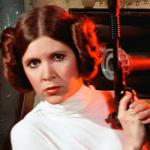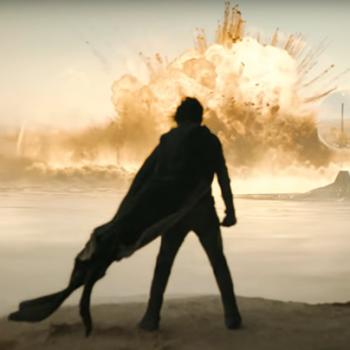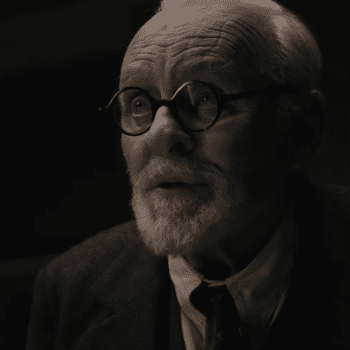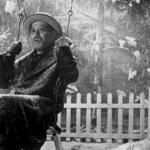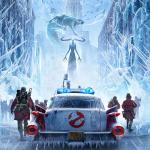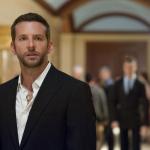
I was a scrawny, buck-toothed –year-old when I first saw the first Star Wars movie—known then simply as Star Wars. (No “A New Hope” for us.) It changed my life, no joke.
I loved the lasers and light sabers. I loved C-3PO and R2-D2. I hated Darth Vader, but that hatred, of course, made the movie all the more loveable. This clean-cut story of a plucky bunch of ragtag good guys taking on an evil galactic Empire pulled me in like no other story before, and maybe like no other story since. John Williams’ dramatic score really said it all: Star Wars was, and really still is, about soaring idealism; about heroes acting heroic and villains acting villainous and us knowing that, eventually, the heroes will overcome all odds and save the day.
Sure, maybe Han did shoot first, and it was a little short-sighted for Luke Skywalker to fight Darth Vader before he was ready in The Empire Strikes Back. But overall, Star Wars gave us a universe filled with white hats and black hats, of an all-powerful Force, karmic retribution and Christianesque redemption. It’s the sort of universe that an 8-year-old longs for—not just because of its nifty weapons and hyperdrives, but because its morals are absolute. You’re either good or bad, and you choose which side you wish to stand on.
But ideals aren’t quite as simple as Star Wars suggested. Or at least, as it suggested ‘til now.
Rogue One: A Star Wars Story is a satisfying one-off chapter in this galaxy far, far away. Packed full of new characters and affectionate nods to the past, Rogue One explores territory we’ve only seen hints of before, even as it goes to some entirely new places—literally, narratively and spiritually.
This is less a rollicking adventure and more a war movie, filled with the moral ambiguity that always accompanies war. For the first time that I can recall, we see that Star Wars’ heroic rebellion isn’t always so heroic.
Admittedly we have no doubt who to root for. The story takes place between Star Wars episodes III and IV, which means that the Empire is in full Big Bad mode, and Darth Vader is at his Darthiest.
But instead of a principled Princess Leia or a gung-ho Luke Skywalker, we meet Jyn Erso (Felicity Jones) who, initially, has no use for Empire or Rebellion. Cassian Andor (Diego Luna) is a ruthless Rebel spy who, in the opening minutes, kills one of his sources in cold blood. Even Cassian’s sidekick robot, K-2SO, is a reprogrammed Empire castoff who treats Jyn with wry suspicion. None of them have much use for the Force. And these are our heroes—the people we’re asked to root for through an entire movie. None of them, at first, seem particularly heroic.
And indeed, they’re far from the only sour apples in the bunch. Saw Gerrera (Forrest Whitaker) broke with the official Rebellion some time ago because of his “extremist” views, and now he takes on the Empire like a terrorist. He attacks the soft underbelly of the Empire with brutal force, hoping to bleed it dry. In the recognized Rebellion itself, Cassian’s commander orders Cassian to assassinate a major Empire scientist—even though there’s a possibility that the scientist might actually be aiding the Rebels. The Rebellion’s leading council bicker and argue, even as a golden opportunity risks slipping away.
It feels like a stark departure from the Rebellion we first see in A New Hope—even though it’s actually the very same one.
Rogue One is a reminder that, even if a cause is just or a people good, that doesn’t mean that motives or actions are always pure and blameless. Indeed, they rarely are. We don’t live in a world of white and black hats. They’re all shades of grey.
That includes Christianity, of course. Our history is filled with mixed motives, ambiguous characters and sad, even shameful chapters. We’ve not always been the salt and light that Jesus expects us to be. We’ve not always mirrored God’s love for the world. I’ve seen Christians espouse things and act in such a way that makes me cringe. As a reporter, I’ve covered many a religious leader fall from grace.
Some argue point to those people and to those moments and say that faith isn’t worth our time. In his book God is not Great: How Religion Poisons Everything, Christopher Hitchens said that faith was “Violent, irrational, intolerant, allied to racism and tribalism and bigotry, invested in ignorance and hostile to free inquiry, contemptuous of women and coercive toward children.”
Hitchens can point to evidence throughout history to bolster his point. But in so doing, the late author ignores a great deal of history, too, and so misses the real point.
He’s right that religion is far from perfect. Faith is filled with imperfect people. We can be selfish and cruel. And even when we try to do the right thing, our hearts and our heads can lead us astray. And yet the world is a far better place, and demonstrably so, because of faith. Religious people donate more to charity, according to The Chronicle of Philanthropy—and the more religious a person is, the more they tend to give. Religious organizations around the world are instrumental in feeding, clothing and educating the poor and needy. Because of religious charities, countless people have clean drinking water; countless people have been rescued from drug or alcohol abuse; thousands of girls have been saved from sexual slavery and have been given a new hope for the future.
A new hope. That sounds familiar.
“We have hope,” Jyn says in Rogue One. “Rebellions are built on hope!”
Christianity is about submitting to a higher authority, of course. Rebellion is not a particularly attractive word in our faith. Still, I like to think that Christianity is its own sort of rebellion—a rebellion against poverty and despair and the sometimes overwhelming problems that face us, both personally and globally. For many of us, Christianity is hope, the greatest and truest hope in the galaxy.
No, it’s not perfect. Nothing is. We may embarrass ourselves. We may even sometimes betray our own ideals. And yet, through grace and perseverance, we return to that ultimate hope, and help us do our best to give that hope to others.



